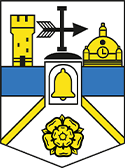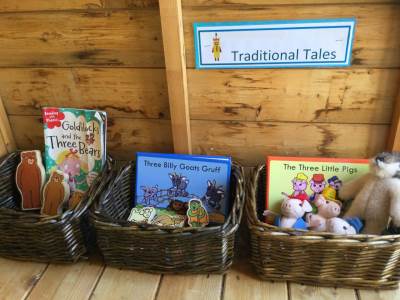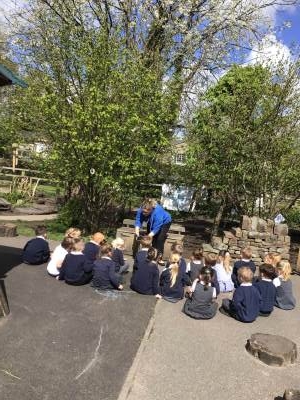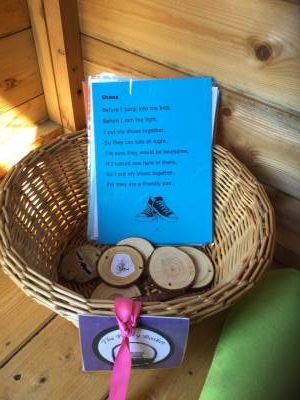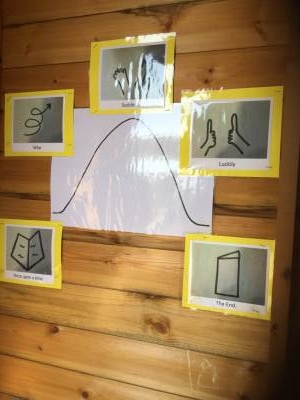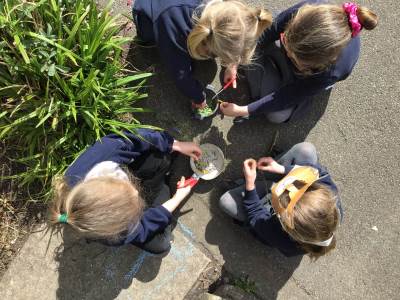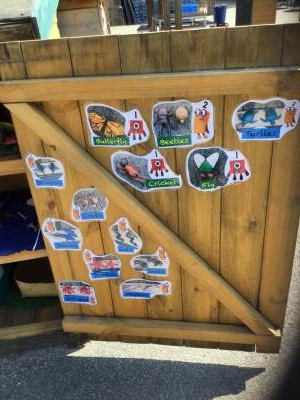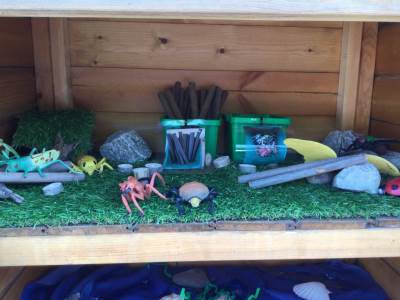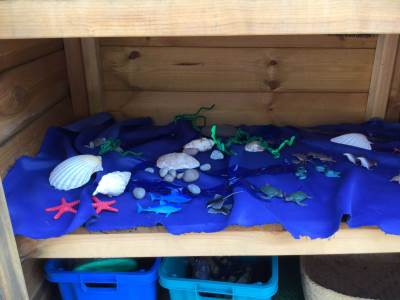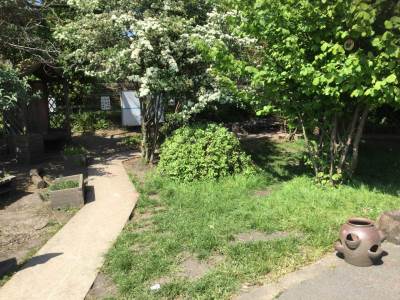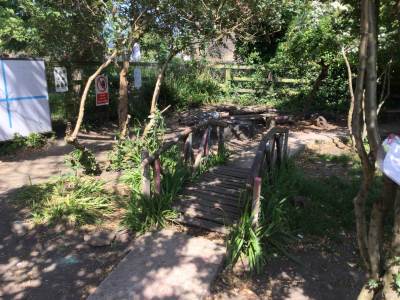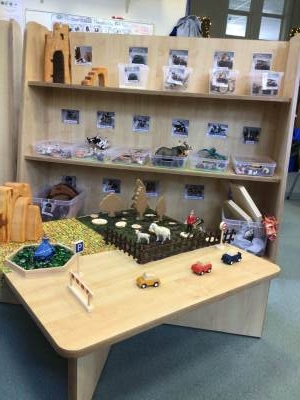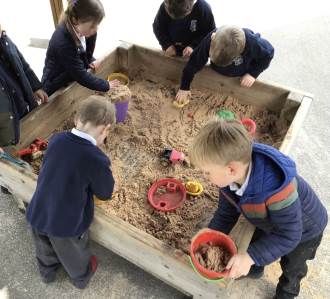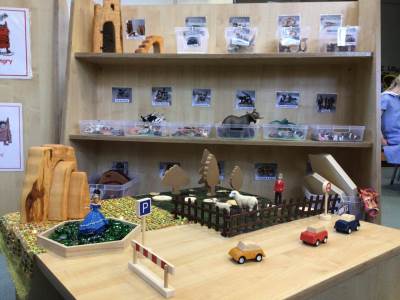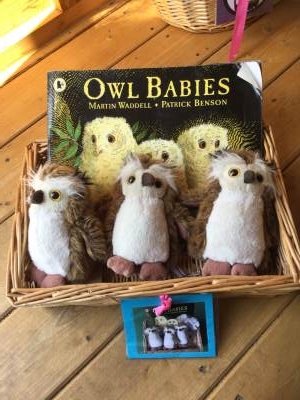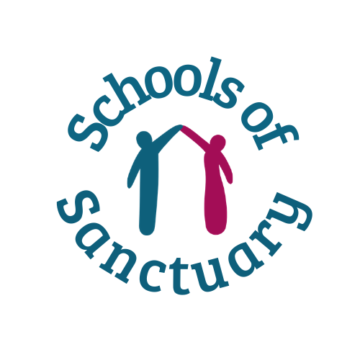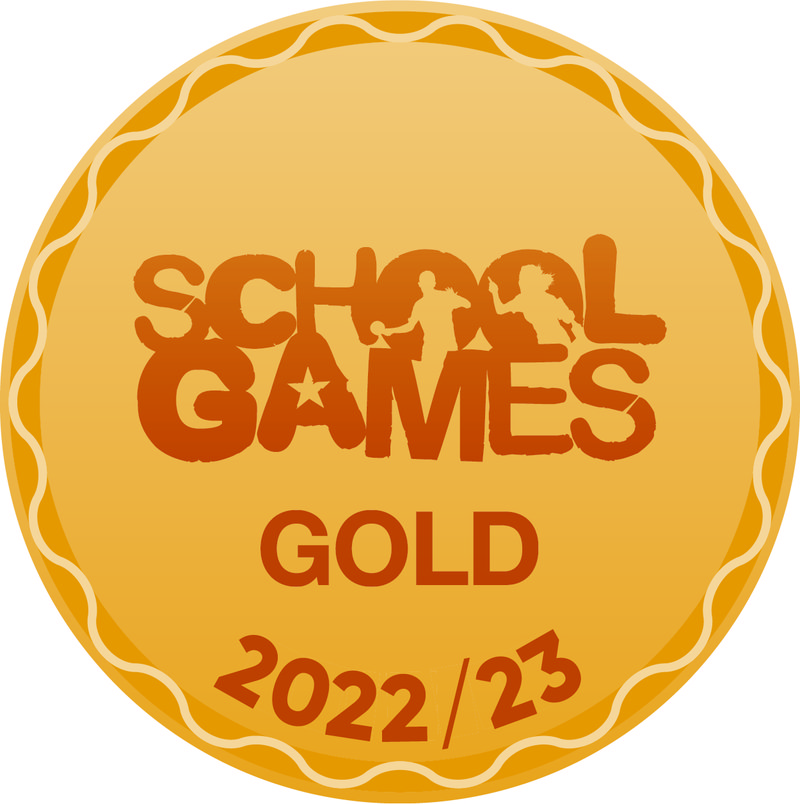Your text here.
Early Years Foundation Stage
Welcome to the Early Years home page. At Glusburn our Early Years setting is home to both our Nursery and Reception children.

Our Early Years leader is Mrs Linsey Sanderson
To find our more about how our children learn and what they are learning please have a look at our page. If you want to find out more about our nursery and reception than please contact the school office.
Intent
In the Early Years Foundation Stage (EYFS), our intention is to ensure we provide a solid foundation which enables our youngest pupils to become successful, independent and engaged learners of the future in our school and wider community.
The Early Years hold a unique and important position in education: it marks a significant milestone in a family’s life. We ensure that we build strong, collaborative relationships with our parents so that they are well informed, involved and able to support their child throughout their education. We put high emphasis on daily communication and strong partnerships.
We establish children’s prior learning and various starting points, and create a spiral curriculum that maximises cross-curricular links and builds strong foundations for their future. Reading is given high priority from that start of EYFS; this is to ensure children are supported to develop a sound vocabulary and fluency so they can read widely and for pleasure in the future.
Our EYFS curriculum is specifically designed and it evolves to provide children with important foundational skills and knowledge that will later be enhanced and embedded in KS1 and KS2. This allows for a smooth transition into year 1.
Our gallery shows examples of areas of provision that the children can access during their independent learning time.
EYFS Provision
Implementation
The curriculum within the Early Years is carefully planned to ensure there are plenty of opportunities for the children to talk, learn, gain experience, explore, develop and share their own knowledge of learning through their play; this is embedded through ‘The Characteristics of Effective Learning’:
Playing and Exploring - children investigate and experience things, and ‘have a go’;
Active Learning - children concentrate and keep on trying if they encounter difficulties, and enjoy achievements;
Creating and Thinking Critically - children have and develop their own ideas, make links between ideas, and develop strategies for doing things.
Through this approach, we ensure that there is sufficient space both indoors and out for children to play and explore with uninterrupted time to do so. The learning environment allows children to engage all of their senses with challenging, creative and innovative opportunities. Open-ended resources are provided so that they can be manipulated, moved and combined in a variety of ways. Resources are chosen to reflect children’s interests within the learning environment allowing children to make choices, decisions and follow an interest or line of enquiry.
The areas of provision within the unit particularly promote the Prime Areas of development (Communication and Language, Physical Development and PSED) that we feel are key in order for children to succeed in the specific areas independently, especially in Literacy and Maths. We use a mixture of child initiated and adult initiated activities.
The topics planned for the children are focused around a key text. This exposes children to high quality stories and language that they can use within their independent learning. We also ensure that there is significant and well-planned focused taught time in order for children to be introduced to new concepts within their learning. The children are taught discrete daily phonics and maths sessions.
How is the curriculum planned in the long-term?
The Glusburn EYFS curriculum is the starting point for our whole school curriculum. It has been carefully planned to ensure children have the knowledge and vocabulary so they are ready to move into the National Curriculum framework in year 1. The majority of our children will be in our care for two years. We therefore have developed a two-year cycle of planning. Our topics are based around a key text as we believe it is crucial for children to develop a life-long love of reading. Areas of provision are enhanced to ensure children can explore each topic. Over the two years our children are able to revisit learning. This is based on Bruner and his idea of a spiral curriculum ‘…revisiting of topics at increasing levels of difficulty. New skills and notions are clearly related to previous learning, with the aim of progressively increasing competency. (Johnston, 2012; Harden, 1999)’ We also ensure individual interests are developed within independent learning as we believe this is imperative and is the heart of our Early Years.
What is our approach to teaching Reading in the Early Years?
Phonics is taught using a systematic and synthetic approach in EYFS. Synthetic phonics is a method of teaching reading that focuses on the link between letters and sounds. This approach is based on breaking down and blending letters so that children learn to link sounds with individual letters and phonemes. Our teaching of phonics through ‘Little Wandle Letters and Sounds’, ensures there is a clearly structured programme with an emphasis on progression and consistency.
Our children enjoy daily discrete phonics lessons as part of the Little Wandle scheme; gaining satisfaction from putting their learning into practice in their reading and writing. In these sessions they will: re-visit previously learnt phonemes; be introduced to a new phoneme and have the opportunity to use and apply their knowledge through reading and writing.
Using this scheme the children take part in three guided reading sessions a week. These focus on decoding, prosody and comprehension. This is supplemented with Big Cat Little Wandle reading books that are closely matched to the child’s phonic ability. As part of this approach, the children are given one reading book per week so their reading can be further developed at home. The expectation is that this is read multiple times so they can read it fluently with understanding. Children also have access to reading books within provision that is matched to their phonic ability. Home reading books are supplemented with reading miles – it is encouraged that parents read these books to their children as part of reading for pleasure. Reading mile books are available for children to read within reading provision so they can talk about and re-visit much-loved stories. High quality texts have been carefully chosen to promote and provide broad vocabulary, diversity, experiences and knowledge.
To find out more about Little Wandle Letters and Sounds please follow the link:
Little Wandle Letters and Sounds
What is our approach to teaching Writing in the Early Years?
In EYFS, we follow the whole school model of using Talk for Writing to encourage the independent invention of stories using a simple, familiar and repetitive structure. Both approaches are used within provision – enabling the opportunity for independent invention – and through focussed writing practise, where children together learn a model text and work through an innovation stage to re-create a similar but adapted story. Writing is encouraged throughout our provision through carefully selected media both inside and outside. We acknowledge that pre-writers need development of gross and fine motor skills as a pre-cursor to writing. Many aspects of our provision are carefully planned to promote physical development.
What is our approach to teaching Maths in the Early Years?
We believe that Maths is all around us and encourage children to realise this by providing a rich environment, with plenty of concrete resources, where children can use and apply their maths knowledge. As well as children learning independently, we believe that a structured Maths Mastery approach will ensure children learn new concepts that they can then utilise for their own ideas and learning. We use White Rose long term plans to ensure we plan for progression and mastery. We are also part of the NCETM Mastering Number. This project aims to secure firm foundations in the development of good number sense for all children from Reception through to Year 1 and Year 2. The aim over time is that children will leave KS1 with fluency in calculation and a confidence and flexibility with number. Attention will be given to key knowledge and understanding needed in Reception classes, and progression through KS1 to support success in the future.
Religious Education (RE) in Reception
RE is a compulsory part of the curriculum for all Reception age pupils and is taught using the North Yorkshire ‘Agreed Syllabus for Religious Education’. We pose the children with these questions: Which stories are special and why? Which people are special and why? Which places are special and why? Which times are special and why? Where do we belong? What is special about our World?
Partnership with Parents: How do we support and encourage parental involvement?
Parents play a crucial role in supporting their children’s learning, and levels of parental engagement are consistently associated with better academic outcomes. Evidence from the EEF's Teaching and Learning Toolkit suggests that effective parental engagement can lead to learning gains of +3 months over the course of a year. (The Education Endowment Foundation (EEF) December 2018)
We pride ourselves on our strong parental links; our parents are greatly respected as a part of their child’s journey. We encourage their support and involvement from the beginning and throughout their child’s time within this important stage of their education.
We encourage parents to attend relevant meetings and workshops to help them to support their child at home. We hold meetings annually that focus on the reading curriculum and how parents can support their literacy development at home.
In EYFS, parents are welcomed and encouraged to visit school at their convenience to read with their child and share in their child’s learning.
[Our child] is loving her time at Glusburn Primary, so much so she no longer wants to go to nursery [another setting the child attends]. Her phonics have come on leaps and bounds and her love of books continues to increase. She's grown in confidence and made lots of new friends. We hope she can continue her journey in education at Glusburn. (Nursery Parent comment from Parent's Evening March 2024)
[Child] has progressed so well since September, her writing is brilliant and she loves to write in her free time. She is confident with her reading and is happy to read on her own. The reception team have supported her with this and we are very thankful. She enjoys coming to school and always tells me about her day. Thank you. (Reception Parent's Evening March 2024)
Harry loves nursery! Very pleased with his progress, definitely the best nursery by far. Lovely place, lovely staff. (Nursery Parent's evening March 2024
Isabelle seems very settled and loves coming to school. We have seen amazing improvement in her reading and writing and she has made some great friends. [We] both can't thank the team at FSU enough. You're all amazing and we are so happy that she came here. (Reception Parent's Evening March 2024)
How do we ensure all children can access our curriculum?
Our inclusive approach means that all children learn together and all adults are informed of the children’s individual needs so they can be supported in their learning. Where required we also use a range of additional interventions to support and enhance progress when required. Examples of interventions used are: NELI, gingerbear, precision teaching of phonics and daily 1:1 readers. Children in receipt of an EHCP or awaiting an EHCP decision, we ensure that they are included in all day-to-day routines and comfortable in their environment.
How do we assess in EYFS?
Learning Journals are used to capture key learning and ensure children know the importance of their own learning, including learning evidence contributed from their families. On-going assessment allows teachers to adjust their activity in the moment, promoting better progress, since the level of challenge or support can be altered to meet children’s needs at the time.
Throughout school, we foster and nurture a child’s long-term and working memory through use of repetition and revisits, STEM sentences and focused sessions where the memory is not over loaded. Our learning culture is built on assessment for learning and the belief in the vital importance of speaking and listening.
Summative assessments happen on entry, termly and at the end of the EYFS.
How do we monitor the quality of our EYFS provision?
Our regular monitoring of teaching and learning includes: coaching, lesson observations and constructive feedback from the Early Years lead. The Early Years lead and teaching staff receive relevant up to date training and keep up to date with important EYFS focuses and initiatives. We are also highly focused on frequently moderating outcomes across the year group so that every member of our team feels confident in making accurate judgements about where individual pupils are and what their next steps are. This is also supported by external, small group moderations with other Early Years teachers within our local authority.
Impact
Our children’s concepts, skills, attitudes and achievements are extended through play and exploration. They are given opportunities to test their ideas, challenge themselves and develop positive relationships with others. As a result, a Glusburn EYFS child is a happy, confident, independent, respectful and safe learner who readily enjoys school and the challenges it brings. They actively demonstrate our values of REACH. The children leave Early Years with the knowledge, skills and ability to adapt to the expectations of the National Curriculum within KS1 and they are on their journey to being well-rounded citizens.
Our EYFS Policy
Our long term plan:

